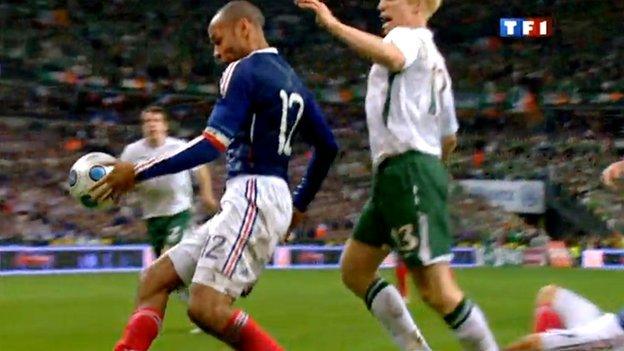Fifa crisis: How the events leading to Sepp Blatter quitting unfolded
- Published
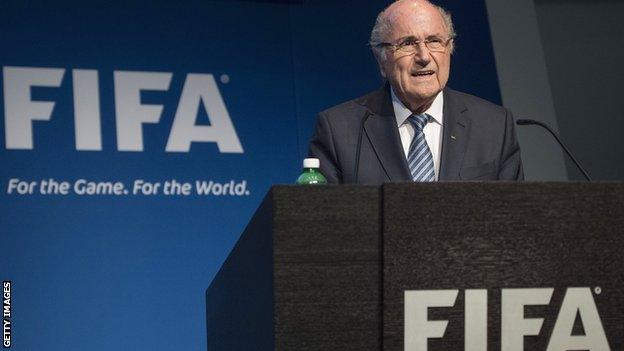
Sepp Blatter announced his resignation as Fifa president after 17 years as the head of world football
It was just after midnight when the first rumblings of the troubles to hit Fifa started to filter through.
I was in my hotel room on 27 May in Zurich when I received a text message from a contact saying there were noises coming from the US about action against Fifa in the morning.
The threat of FBI action was known. The New York Daily News had reported as much late last year and even Sepp Blatter had said in April that "everyone knew" an investigation was taking place.
But would US officials strike just two days before Fifa's presidential election?
At 5.45am I knew the answer. The New York Times broke the story that raids on football officials were under way at the Baur au Lac hotel.
I scrambled to get ready, alerted Andrew Cropper, a BBC Sport producer and Nick Waterworth, our cameraman.
Thirty minutes later, after an agonisingly long taxi journey, we arrived at the hotel.
En route I'd called several senior Fifa officials in an attempt to confirm the story. I woke them up with the news, all of them asking if I could send them the link to the New York Times article. This came as a complete surprise to everyone.
I made my way inside the hotel, convincing the ever attentive concierge that I be allowed to stay.
Taking a seat in the lobby I watched on as first Fifa's general secretary Jerome Valcke hurriedly arrived, desperately trying to establish what had happened.
Minutes later he was consoling the wife of Jeffrey Webb, a Fifa vice-president who had just been arrested.
Sepp Blatter's controversial career
By now I was on my phone, reporting the latest developments across the BBC.
But in between calls, I watched the lift doors open and three men emerge. One was Jose Maria Marin, the Brazilian FA chief. The other two were Swiss police officers. Marin moved slowly. His face was ashen and the two officers were acting towards him in a manner more like that of care home workers than police.
They carried his hastily packed possessions in plastic bags and a small black suitcase.
By now Fifa had convened an emergency meeting at their headquarters in the hills above Zurich.
What would become known later was that police had also visited their offices that morning, under the orders of a Swiss investigation into how the Russia and Qatar World Cups were awarded.
Fifa corruption crisis explained
A news conference was called for 11am. Walter de Gregorio, Fifa's smooth talking director of communications, spoke of how the arrests were a good thing for the world governing body's reform process but not so good for its image.
The election and the congress would go ahead.
But Fifa's - and Sepp Blatter's credibility - had suffered enormous damage. And worse was to come.
On Tuesday, 2 June, all was not well for Blatter and Fifa.
The day started with pressure being placed on Valcke and his alleged connection with a $10m payment from a Fifa account to then vice-president Jack Warner.
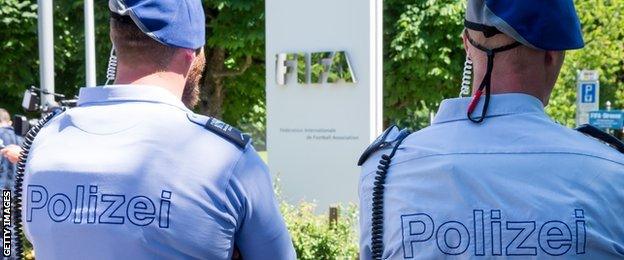
Swiss police arrested seven Fifa officials on corruption charges
A flurry of statements followed as Fifa tried to extinguish the latest fire to flare up as a result of the crisis.
But there were no indications of the drama that lay ahead.
By early afternoon the parts of the jigsaw puzzle were starting to come together.
I became aware that senior advisors were returning to Zurich.
One member of the powerful executive committee told me the situation was "very bad" for Blatter and he couldn't predict what would happen next.
But another contact told me he simply couldn't believe Blatter would go. "They'll have to drag him out of that office - no way is he going to leave today," he told me.
So is he going to quit today or not? Is this one of the biggest sports stories of the century? Or is it a false alarm?
Maybe it's Valcke who will go?
More calls were made. What emerged was a pattern of information that pointed to Blatter considering his position as Fifa president.
Then, shortly after 4pm, Fifa announced there was to be a news conference at their headquarters in just two hours' time.
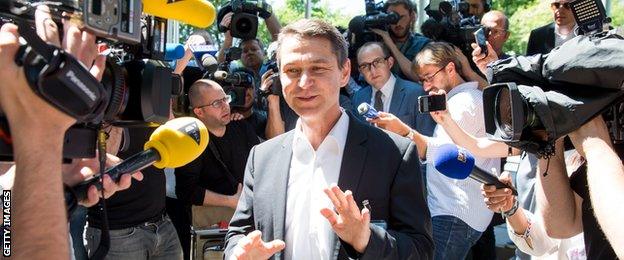
Ralf Mutschke has been Fifa's director of security since 2012
Not for the first time since I'd arrived in Zurich I scrambled to get in position.
Arriving at Fifa's sprawling complex it was clear I would be one of just a handful of journalists to witness what was about to take place.
In the end I was the only British-based journalist present.
The senior figures in and around the building made me even more convinced that Blatter was on the edge.
Nicolas Maingot, Blatter's head of protocol, looked nervous. Ralf Mutschke, the organisation's head of security, kept a watchful eye on the media.
Blatter's personal advisers were all hovering around, some in hushed conversation with one another.
Why were such senior people present? It was unusual.
Sepp Blatter resigns as Fifa president saying new elections will be held soon
In Fifa's main auditorium the nameplates had been placed on the top table.
Domenico Scala - Fifa's independent head of audit and compliance - would speak.
That signalled an election process could be about to commence, given his role in overseeing the contest that had just concluded some four days ago.
Soon we knew the answer as to why the media had been called in. Sepp Blatter was to go. An orderly transition of power would take place.
The people who had stood by Blatter for years as his advisors and staff looked shell-shocked.
This was an attempt to wrest some control of the crisis. This was Blatter the statesman trying to install an orderly transition of power.
After making his speech he shook hands with Scala and exited the room. There was silence. No questions were permitted as the man who has led Fifa for 17 years departed through the door and into an uncertain future.
- Published6 June 2015
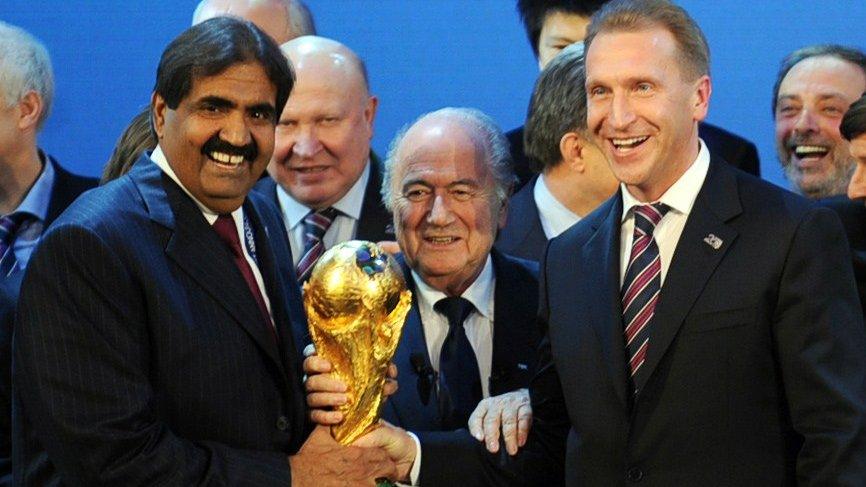
- Attribution
- Published6 June 2015
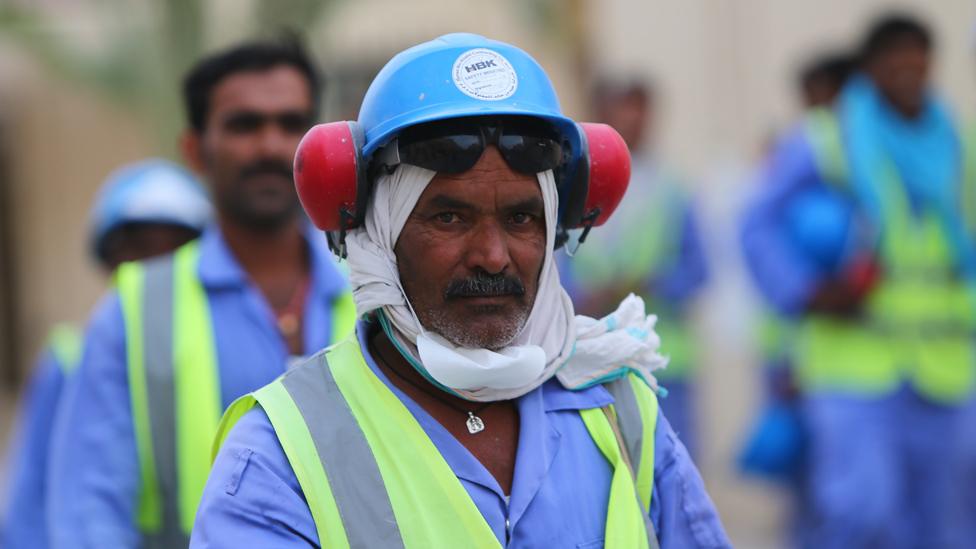
- Published6 June 2015
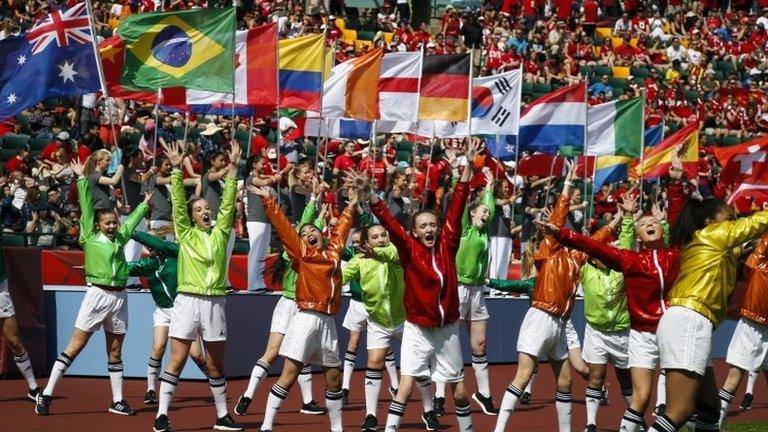
- Attribution
- Published5 June 2015
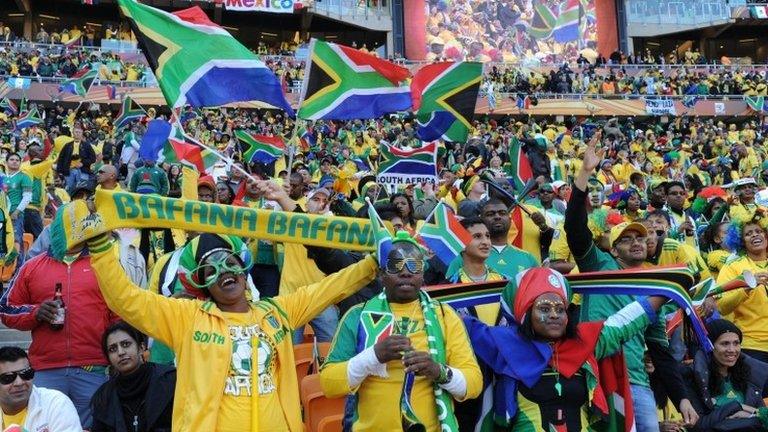
- Attribution
- Published5 June 2015
